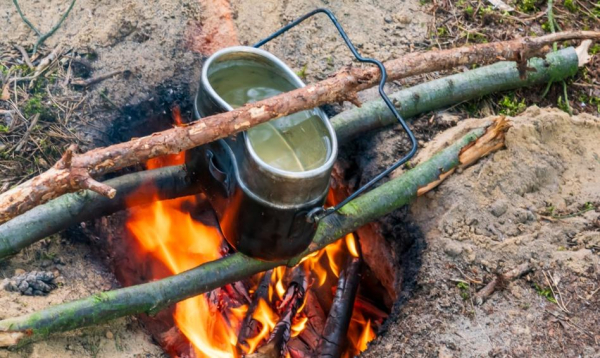In the event of a crisis, we must prepare supplies of water, food that does not require heat treatment, medicines, batteries, garbage bags. A bucket with a tight lid may also be useful as a makeshift toilet – the spokesman for the Government Security Centre told PAP.

The Government Security Centre, together with the Ministry of Interior and Administration and the Ministry of National Defence, are working on a Crisis Guide, which is to help Poles prepare to survive difficult situations that may arise – both in peace and war. It will be partly modelled on the guide “Be Ready”, which the RCB published three years ago and on the Swedish brochure entitled “In the event of a crisis or war”.
However, before this guide reaches our hands – in a digital version, it is to happen already in April – PAP asked Piotr Błaszczyk from the Government Security Centre, among others, about how to deal with hygiene issues.
Błaszczyk stressed that the key issue is to gather supplies of food (preferably that does not require heat treatment, i.e. canned or preserved foods) and water.
“We recommend preparing two liters of water per person per day, or 14 liters per week. It may not be much, but it will help you survive,” he noted.
He reminded that if we have pets at home, it is also worth taking care of the supply of food for them.
Evacuation backpack. How much should you pay to prepare for the unknown?
The evacuation backpack is experiencing a renaissance again after the words of the head of the Ministry of National Defense, Władysław Kosiniak-Kamysz, who stated that he has packed one since the Russian invasion of Ukraine. The Government Security Center has updated the list of items that should be included in such luggage. We asked the source, i.e. preppers.
MORE…
The RCB spokesman expressed hope that every household has a first aid kit containing bandages and painkillers and anti-inflammatories. At the same time, he expressed hope that people who take medications on a regular basis will make sure to have enough of them “to ensure an appropriate level of health safety”.
When asked about how, for example in the event of a blackout when there is no running water, one should satisfy one’s physiological needs, he replied that although it is an embarrassing issue, it is worth thinking about it in advance and finding a way that is hygienic and optimal for us.
He noticed that the Swedes in their guide advise to pass stool into bags, which can then be thrown away, or simply into garbage bags. Urine does not need to be “drained”, as it will flow out on its own, but in case of “greater need” a bucket with a tight lid can also fulfill its role, the contents of which can be emptied when it is finally possible to leave the house.
The interview with Piotr Błaszczyk from RCB will be published at 7:00.
Mira Suchodolska (PAP)
mir/ jann/ lm/